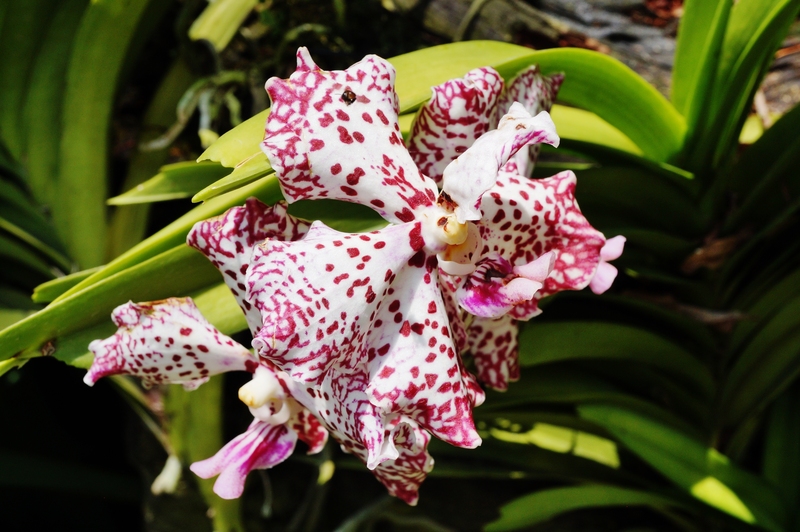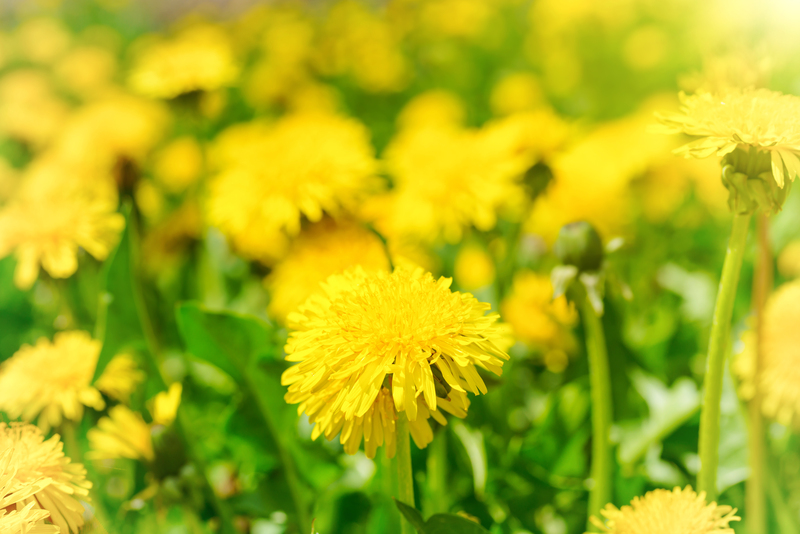Beginner's Bloom: 9 Key Gardening Tips You Need
Posted on 24/05/2025
Beginner's Bloom: 9 Key Gardening Tips You Need
Starting your first garden can feel exciting yet overwhelming. With so many plants, tools, and tricks out there, where do you begin? Whether you wish to cultivate a small patio flower bed or dream of a bountiful backyard vegetable patch, understanding the essentials gives you a strong foundation and increases your chances of success. This comprehensive guide offers you nine crucial gardening tips for novices that will help your garden flourish from the very first day.
Why Gardening for Beginners Is Rewarding
Embracing gardening as a beginner opens up a world of relaxation, creativity, and healthy rewards. Growing your own plants not only enhances your outdoor space but also nourishes your mind and body. From boosting your mood to providing fresh organic vegetables, embarking on your gardening journey is worth every muddy hand and learning curve.
Essential Gardening Tips to Kick-Start Your Garden
- Choose the right location
- Start with quality soil
- Pick beginner-friendly plants
- Plan and space your garden
- Understand sun and shade patterns
- Water wisely
- Learn about plant nutrition
- Embrace mulching
- Practice patience and observation

1. How to Choose the Perfect Garden Location
Location is everything! When launching into gardening for beginners, selecting the right space determines your success. Most edible and ornamental plants need at least 6 hours of sunlight.
- Observe your yard throughout the day to spot the sunniest areas.
- Consider accessibility--make sure your new garden plot is easy to water and can be reached frequently.
- Evaluate drainage: Avoid low spots where water collects, as excess moisture can cause root rot.
2. Start with High-Quality Soil
Soil is the lifeblood of your garden. Healthy, nutrient-rich soil gives your plants the best chance to thrive.
- Get a simple soil test kit from your local garden center to check pH and nutrient levels.
- For most plants, a neutral pH between 6.0 and 7.0 is ideal.
- Add organic compost or aged manure to improve texture, fertility, and drainage.
3. Choose Plants That Are Easy to Grow
Not all plants are equally suited for first-time gardeners. Selecting low-maintenance, hardy species gives you gardening success fast.
- Vegetable starters: Lettuce, radishes, beans, and zucchinis are forgiving and quick to mature.
- Flower favorites: Sunflowers, marigolds, zinnias, and pansies offer cheerful color with minimal fuss.
- Choose native plants for your region to reduce care and increase disease resistance.
Pro tip: Begin with seedlings rather than seeds for a confidence-boosting head start.
4. Plan and Space Your Garden Thoughtfully
It's tempting to plant everything close together, but crowding leads to competition and reduced growth.
- Read plant labels or seed packets for mature size and spacing recommendations.
- Visualize your garden as it will look fully grown, leaving enough room for air flow and easy harvesting.
- Grouping plants with similar sunlight and water needs together makes ongoing care simpler.
5. Understand Your Garden's Sun and Shade Patterns
Sunlight isn't just about hours--intensity and timing matter, too. Keep these points in mind:
- Morning sun is gentler than scorching afternoon rays.
- Notice how buildings, fences, and trees cast shade during different parts of the day.
- Try partial-shade plants like ferns or hostas for spots with less sun.
6. Master the Art of Watering
Watering may seem simple, but it's one of the most important skills in gardening for new gardeners.
- Most gardens prefer deep, infrequent waterings over daily light sprinkles--this encourages deeper root growth.
- Water in the early morning to prevent excess evaporation and minimize disease risk.
- Whenever possible, water at the base of the plant, not the leaves, to reduce fungal issues.
7. Feed Your Plants the Right Nutrients
Nutrient needs vary by plant, soil condition, and time of year.
- Use compost, slow-release fertilizers, or organic blends tailored to your chosen plants.
- Monitor growth and color--yellowing leaves may signal a need for more nitrogen, while stunted growth could indicate phosphorus or potassium deficiency.
- Avoid over-fertilizing, which can harm both plants and the environment.
8. Mulch for Moisture and Weed Control
Mulch is a beginner gardener's best friend. Mulching offers multiple benefits:
- Retains soil moisture, reducing how often you need to water.
- Makes garden beds tidy and attractive.
- Suppresses weed growth by blocking sunlight to weed seeds.
- Improves soil quality as organic mulch breaks down over time.
9. Practice Patience and Observe Regularly
Perhaps the most crucial beginner gardening tip: Be patient and watchful. Plants, like people, grow on their own timeline.
- Check your garden daily for signs of pests, disease, or drought stress.
- Celebrate small successes and learn from every failure.
- Keep a simple garden journal to track planting dates, weather, and outcomes.
Bonus Beginner-Friendly Gardening Ideas
- Container gardening: Great for renters or those with limited space. Try herbs, cherry tomatoes, or flowers in pots on a balcony or terrace.
- Raised beds: These prevent soil compaction, provide excellent drainage, and make gardening easier on your back.
- Join a garden club or online community: Exchange tips, swap seeds, and share your progress with fellow beginners and experienced growers.
Common Beginner Gardening Questions and Answers
What are the best tools for beginner gardeners?
- Hand trowel
- Pruners or garden shears
- Watering can or hose with spray nozzle
- Garden gloves
- Sturdy digging fork or spade
How can I improve my garden's success as a novice?
- Start small, and gradually expand as you gain confidence.
- Stick to easy-care plants tailored to your climate.
- Follow these foundational gardening tips for beginners!

Gardening for Beginners: Final Thoughts
Whether you're cultivating a vegetable patch, growing a wildflower bed, or simply keeping a windowsill herb pot, gardening is as much about discovery as it is about harvest. Each of these nine essential tips for new gardeners brings you closer to cultivating a resilient and thriving garden. Remember to enjoy the process, observe the miracles of nature, and learn with each season.
Start Your Beginner's Bloom Today!
Your first garden doesn't have to be perfect. With these key gardening tips for beginners, even the newest green thumb can create a sanctuary of growth and beauty.
Embrace your Beginner's Bloom--your garden journey starts now!
Latest Posts
Building a Whimsical Child-Friendly Garden
Unlock Unmatched Privacy with These 9 Swift-Growing Hedges
Transform your garden into a haven for dogs
Effective Ways to Shield Your Garden Plants During Winter
Green Paradise Restoration: Where to Begin in Garden Makeovers



